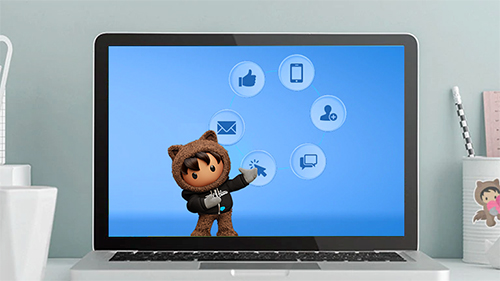Marketers are, in many ways, the voice of a company. They shape how customers perceive a brand—particularly in times of crisis. But COVID-19 is completely new territory. How should marketers respond? How can they best engage with customers at this time?
To shed some light on these subjects, ETBrandEquity and Salesforce hosted a webinar on The Changing Face of Marketing in Times of Crisis. The session brought together marketing leaders from a range of industries to discuss best practices around adapting branding and communication strategies to the ongoing crisis.
The speakers included:
● Yashdeep Vaishnav, Country Manager, Marketing Cloud, Salesforce
● Aalok Bhan, Director & Chief Marketing Officer, Max Life Insurance
● Anuj Tiwari, CEO, Aakash Digital (Aakash Institute)
● Uma Talreja, Customer Care Associate, Chief of Marketing & Customer Officer, Shoppers Stop Ltd
● Vikram Garga, VP Marketing, Mahindra & Mahindra
Here’s what they had to say:
Stay connected with your customers
Many marketers have made a conscious decision to suspend product promotions for a while. But this doesn’t mean that you stop engaging with customers. Your audience still wants and needs to hear from you. The key is to be relevant in your marketing communication. Think about what your customers might need from your brand right now, and how you can be of help.
Automobile manufacturer Mahindra & Mahindra put out information on how customers could maintain their vehicles during the lockdown. Max Life Insurance set up a dedicated COVID-19 resource page on their website with FAQs, lists of open office branches, simplified COVID-19 claim settlement forms, and other actionable information that customers needed.
Meanwhile, department store chain Shoppers Stop focused on reassuring customers about the safety measures it was taking at its physical stores, so that customers would feel comfortable and confident about shopping there again.
At Salesforce, we understand how important it is to stay responsive to customers. With Marketing Cloud you can connect easily with your audience, alleviate their concerns, and engage in relevant conversations with them across social media channels.
Communicate with empathy
COVID-19 has been tough on everyone. Customers are worried about their health, the safety of their families, the security of their jobs, and more. This is a time to demonstrate empathy—to be thoughtful and sensitive in your communication.
Online learning platform Aakash Digital found that its students were worried about the uncertainty surrounding examination dates. Parents were worried about keeping their children productive and engaged during the lockdown. Additionally, the concerns of a tier-1 city customer were often quite different from those of tier-2 or tier-3 city customers.
Aakash Digital responded by customising its marketing conversations and products to each customer segment’s unique needs. Teams were encouraged to listen to customers with empathy, and guide them to the right solutions for their challenges.
The company also understood that in a time of anxiety, people prefer messaging that is simple and meaningful. So, rather than putting out splashy, influencer-led marketing campaigns, the company chose to let simple student and parent testimonials build trust in the brand.
Find ways to uplift and inspire
Positive stories capture people’s attention, by letting customers know that good things do happen even when everything seems bleak. So, look for ways to inspire your customers. For instance, Mahindra & Mahindra’s business leaders used their Twitter handles to share some of the good work that the company was doing—whether it was building face shields and aerosol boxes for medical staff, or providing fleets of ambulances for patients.
Be agile in your marketing strategies
Customer needs and priorities have changed rapidly since the pandemic. But brands that are listening keenly to their customers will find opportunities to pivot and respond in meaningful ways.
Shoppers Stop, for instance, launched a survey across seven million loyalty program customers. The findings led the retailer to tie up with various authors, publishing houses, and fitness experts in creating a series of live-streamed events that would engage and entertain customers.
These initiatives enabled the company to adapt and stay relevant to their customers, even in uncertain and rapidly changing times.
Lead with digital
COVID-19 has accelerated digital transformation like nothing else. Soon, it won’t be enough for companies to merely have a website or social media presence. Successful marketing will be about finding ways to use technologies like AI, virtual reality, and the internet of things to reimagine the customer experience.
For instance, Mahindra & Mahindra has a “Bring the Showroom Home” initiative which uses virtual and augmented reality technologies to give customers a 360-degree, all-encompassing, and immersive experience of the car showroom. Customers can discover what it would feel like to sit inside the car of their choice—all from the comfort of their homes.
As more marketers go digital, strategic decision-making will be underpinned by data and analytics. Here, solutions like Salesforce Marketing Cloud can help you make sense of your data. Pinpoint which marketing channels are providing the best returns on investment. Also pull together information from multiple sources to provide a unified view of the customer. And use the power of AI and analytics to personalise customer communication at scale. The result? Better customer engagement.
Find out more
Watch the webinar – The changing face of marketing in times of crisis



